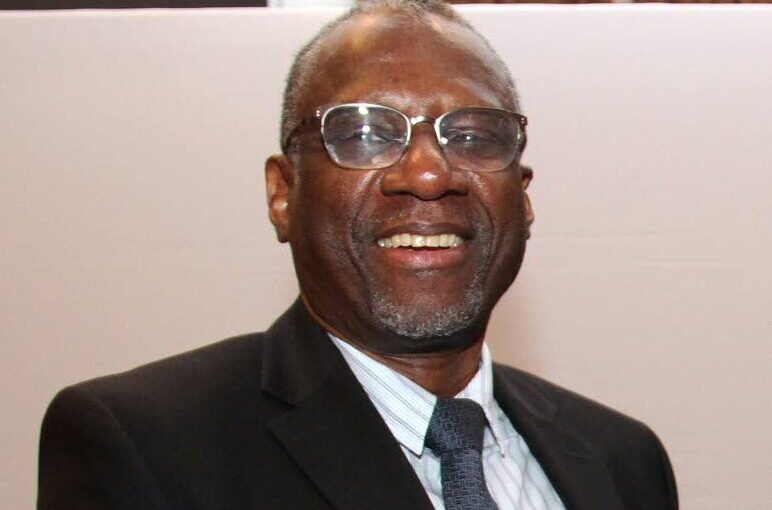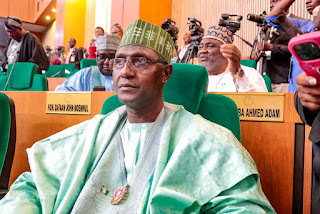The Venetian Republic's political system, emerging alongside those of other Italian city-states, was founded on collaboration and power...
Vous n'êtes pas connecté
- English
- Français
- عربي
- Español
- Deutsch
- Português
- русский язык
- Català
- Italiano
- Nederlands, Vlaams
- Norsk
- فارسی
- বাংলা
- اردو
- Azərbaycan dili
- Bahasa Indonesia
- Հայերեն
- Ελληνικά
- Bosanski jezik
- українська мова
- Íslenska
- Türkmen, Түркмен
- Türkçe
- Shqip
- Eesti keel
- magyar
- Қазақ тілі
- Kalaallisut ; kalaallit oqaasii
- Lietuvių kalba
- Latviešu valoda
- македонски јазик
- Монгол
- Bahasa Melayu ; بهاس ملايو
- ဗမာစာ
- Slovenščina
- тоҷикӣ ; toğikī ; تاجیکی
- ไทย
- O'zbek ; Ўзбек ; أۇزبېك
- Tiếng Việt
- ភាសាខ្មែរ
- རྫོང་ཁ
- Soomaaliga ; af Soomaali
Rubriques :
 Maroc - NEWSDAY.CO.TT - A la Une - Hier 06:22
Maroc - NEWSDAY.CO.TT - A la Une - Hier 06:22
Parliamentary autonomy: Let’s get on with it
TERRENCE FARRELL ON JANUARY 28, Senator Wade Mark introduced a motion in the Senate on "parliamentary autonomy." As Mark reminded us, it was not the first time that this issue had been raised in the Senate and, indeed, he also reminded the Senate that, following unanimous support in that chamber in 2018, promises had been made by the then attorney general in 2019 to make his best efforts to introduce legislation to implement parliamentary autonomy. Parenthetically, Mark, both in his current capacity and his former capacity as Speaker, has been a consistent champion of the cause of parliamentary autonomy. Senator Anthony Vieira weighed in on the debate in full support of the motion and roundly castigated the government side for its dilatory approach to what is a fundamental governance issue requiring rectification. For its part, the government’s attempt to explain its lack of action on the issue, the promises of the former attorney general notwithstanding, lacked coherence and conviction. Vieira wanted a definite timeframe for enabling legislation within the remaining life of the current Parliament. In fact, on a motion on the adjournment, Vieira raised the related question of "judicial independence" and "judicial autonomy," citing the remarks of the Chief Justice at the opening of the Law Term. The doctrine of the separation of powers which underlies the demand for parliamentary and judicial "autonomy" is realised differently in different jurisdictions. In no jurisdiction are the three traditional branches of the state – executive, judiciary and legislature – completely separate from each other, because they simply cannot be. One unbreakable link is simply money! All branches need money from the national Treasury to carry out their functions and while the Parliament may authorise appropriations through taxation and borrowing, expenditure under the national budget is largely under the control of the executive. The worry is that the executive uses its control over the public purse to bend either the Parliament or the judiciary to do its bidding. Mark asked rhetorically: why should the executive be able to control the travel of parliamentarians on Parliament business, a point raised similarly by former chief justice de la Bastide in his conflict with the then attorney general. A second nexus is membership. While members of the executive and the Parliament cannot be members of the judicial branch, in our system of government, there is considerable overlap between the memberships of the executive and the Parliament. This overlap is so extensive that there is effectively no backbench in the House of Representatives, with most members on the government side in that chamber and some in the Senate having full-time jobs as government ministers. This is dysfunctional in that it severely compromises the ability of the Parliament to hold the government to account. The National Advisory Committee on Constitutional Reform (NACCR) was fully in support of both judicial independence and greater administrative and financial independence for the Parliament and the judiciary. In fact, the NACCR felt that the Parliament should be extricated from under the thumb of the executive if it is to play its critical role of holding the government (and the judiciary) to account. In respect of financial independence, the NACCR appreciated clearly that control of the public purse could not be ceded willy-nilly to the judicial or legislative branches. How taxpayers' money is spent and for what purposes is the responsibility of the government. Moreover, the government does not have unlimited funds and has to prioritise and allocate expenditure across the entire government. The answer is for the recurrent budgets of the judiciary and Parliament to be determined collaboratively with agreement on the size and composition of the establishments, based on approved strategic plans. The allocations for capital expenditures would be determined similarly, but with the government having closer oversight over the timing of those expenditures. The recurrent expenditure of the judiciary and the Parliament would be direct charges on the Consolidated Fund. Depending on its cash flows, funds could then be released to the Parliament and the judiciary on, say, a quarterly basis, with the budget division giving global guidance to the Parliament and judiciary on the current state of the public finances. The Parliament and judiciary would have to be appropriately staffed to manage these operations. Administrative independence can be implemented by the Parliament and the judiciary having all of their staff extricated from the mainstream public service and placed under their respective departments. The appointment, transfer, promotion and dismissal of those staff would be guided by procedures delegated and overseen by the Public Service Commission for the Parliament and the Judicial Service Commission for the judiciary. While financial and administrative independence are important, the most important reform in achieving parliamentary independence and in fulfilling its accountability function is to change the membership of the House of Representatives and the Senate. In this regard, the NACCR proposed expanding the size of both the House and the Senate. In the House, there would be a limit on the number of members who could be ministers (as is done in the UK), deem members of the House full-time workers, and remunerate them appropriately. This would create a sizeable backbench and allow for more effective oversight of government departments and agencies by well-resourced committees. The Senate would be appointed on a proportional representation basis, based on the the results of a general election, except for those senators appointed by the President. This would reduce the overlap between the executive and the Parliament and create the conditions for a more independent and effective legislature. The proposals for financial and administrative independence could be effected by ordinary legislation, but the structural reform of the electoral system to secure changes in the membership of the Parliament will require constitutional reform. As Senators Mark and Vieira pointed out in the debate, these reforms are long-standing and long overdue, and given the poor performance of Parliament’s accountability functions, there are simply no good excuses for further delay. The post Parliamentary autonomy: Let’s get on with it appeared first on Trinidad and Tobago Newsday.
Articles similaires
Wisconsin Democrats seek to prohibit state and local cooperation with ICE
Wisconsin Democrats announced legislation Tuesday that would block state and local government officials from cooperating with federal deportation...
'Dangerous': Even GOP outraged by Tennessee push to jail officials for pro-immigrant votes
As Gov. Bill Lee’s immigration enforcement plan moves swiftly through the Tennessee Legislature, one component of the bill — aimed at arresting...
Ex-execs head to court; Gonzales vows to follow law on TSTT cyberattack report
MINISTER of Public Utilities Marvin Gonzales said on January 27, his attorneys will respond to a letter from attorneys representing two former...
New Sports Minister Kofi Adams pledges review of African Games finances
Sports and Recreation Minister-designate Kofi Adams has promised parliamentary action regarding financial concerns surrounding Ghana's hosting of...
Ahead 2027: Why opposition can’t upstage ruling party
The sight was not just bewildering it was also shocking. Dateline was Thursday, May 29, 2003. Venue was Aso Rock Presidential Villa. It was the...
🎥💣😨(“The War on Terror”) Anatomy of a CIA 'Conspiracy Loop': Even the Lame Stream Media admits False Flags are real ~ Jan 30, 2025 ~ |
Editor's Note: In the old days before 1970 - yes - there was real terrorists. Now of days, it's mostly, False Flag Pseudo-operations, that is...
FF Plus calls for constitutional challenge to Expropriation Bill
The Freedom Front Plus has called on parties that voted against the Expropriation Bill to join hands in challenging the constitutionality of the new...
Akpabio Charges National Assembly Service Commission To Be Firm In Enforcing Its Laws
The President of the Senate, Godswill Akpabio, has admonished the National Assembly Service Commission(NASC) to always be firm in the enforcement...
Senate Committee on Army Hails Troops for Bravery in Decisive Operation
The Senate Committee on Army, chaired by Senator Abdulaziz Musa Yar’adua, has commended the troops for its exceptional bravery and professionalism...
Les derniers communiqués
-
Aucun élément








